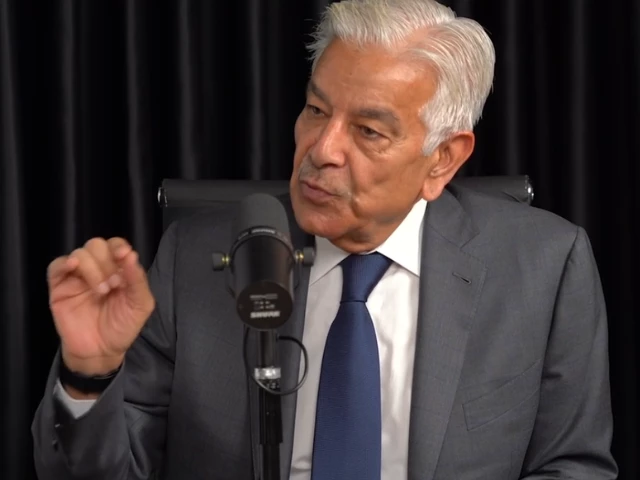Defense Minister Khawaja Asif speaks during an interview with British-American journalist Mehdi Hasan on his show Mehdi Unfiltered. SCREEN GRAB
A ceasefire agreement between Islamabad and Kabul rests on the ruling Afghan Taliban’s ability to rein in terrorists attacking Pakistan across their shared border, Defense Minister Khawaja Asif told Reuters on Monday.
“Anything that comes from Afghanistan will be (a) violation of this agreement,” said Asif, who led the talks with the Kabul regime’s acting defense minister, Mullah Yaqoob Mujahid. “Everything depends on this one clause.”
In the written agreement signed by Pakistan, Afghanistan, Turkiye and Qatar, it was clear that there would be no intrusion, the minister said.
“We have a cease-fire agreement as long as there is no violation of the agreement that is already in place.”
The minister said Tehreek-e-Taliban Pakistan (TTP) is operating out of Afghanistan to attack Pakistan “in collusion” with the ruling Taliban, the minister said.
“We were attacked. Our territory was being attacked. So we just made tit for tat. We paid them with the same coin,” Asif said. “They’re in Kabul. They’re everywhere. Wherever they are, we’re going to attack them. Kabul is not, you know, a no-go area.”
The next round of talks would be held in Istanbul on October 25 to develop a mechanism on how to enforce the agreement, Asif said.
In a separate interview with Al Jazeera Arabic, Defense Minister Khawaja Asif said the primary objective of the Pakistan-Afghanistan ceasefire agreement was to “eliminate the threat of terrorism”.
Asif said terrorism had long plagued the Pak-Afghan border regions and both sides had come to the conclusion that immediate eradication of terrorist elements was essential.
He added that the two countries would make serious and coordinated efforts to curb terrorism, warning that regional peace could face serious threats if the issue was not resolved.
He disclosed that the agreement was reached through the mediation of Qatar and Turkiye, whose participation served as a guarantee for the agreement. The minister appreciated the role played by Qatari Emir Sheikh Tamim bin Hamad Al Thani and Turkish President Recep Tayyip Erdogan in facilitating the talks.
Asif further stated that another meeting is planned in Istanbul next week to finalize the details of the agreement, under which an effective mechanism will be developed to resolve existing issues between the two countries.
He added that his Afghan counterpart also recognized terrorism as the primary cause of tension in bilateral ties, a matter that both sides were now determined to resolve.
The Defense Minister noted that Pakistan had suffered huge human and economic losses over the years due to terrorism. However, he expressed optimism that peace would now return and relations between Pakistan and Afghanistan would normalize.
He said as a result of the ceasefire, trade and transit activities between the two countries would resume, allowing Afghanistan to use Pakistan’s ports again.
The minister also clarified that Afghan refugees with valid visas and documents would be allowed to stay in Pakistan, while the repatriation of undocumented refugees would continue.
But Asif warned that it was too early to claim satisfaction with the resolution of all problems. “We will have to see in the coming weeks and months how effectively the agreement is implemented,” he said.
In a separate interview with Arab News, Asif categorically rejected speculation that Pakistan’s recent airstrikes in Kabul were carried out at the behest of the United States. “It’s total nonsense and nothing else,” he said.
He questioned why Pakistan would act on behalf of others, noting that it had already endured decades of involvement in Afghan affairs.
“We want to stay away and live as decent neighbors. We don’t want to be involved in Afghan affairs,” Asif said, adding that Pakistan had “no business” in the Kabul regime’s relations with India or any other country.
“Absolutely not. Whatever they want to do in their own territory and does not spill over into our territory, it will not be our business,” he argued.
(With input from agencies)



